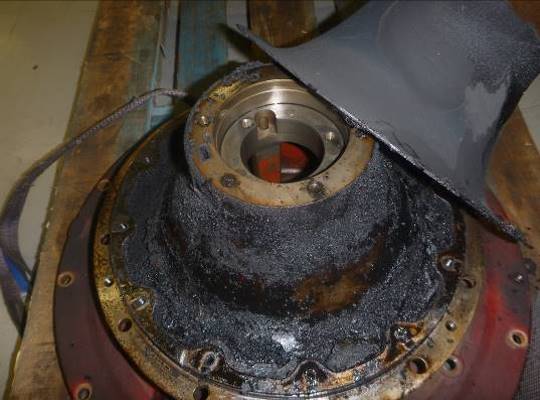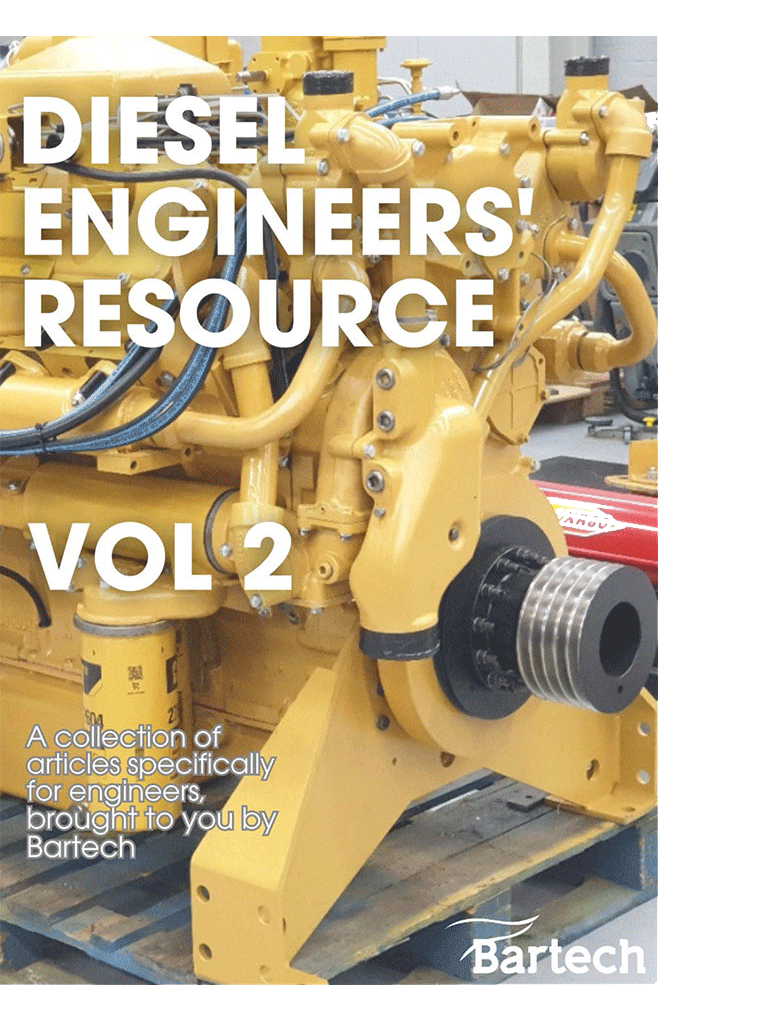I often mention the importance of having bespoke service plans tailored to your critical diesel engine, suited to its application and environment.
And a recent work scope showed how vital this is for the turbocharger as well.
We currently have a couple of ABB VTC 254-13 turbochargers in our workshop for full dismantle and report.
Both have issues that could have been prevented if a more suitable maintenance schedule was in place rather than the one they had from the manufacturer.
Here are some of them:
- A rubbing noise from the compressor end when the rotor assembly was rotated. When more closely inspected, the whole wheel assembly was turning in an elliptical pattern indicating internal damage.
- The compressor wheel had sustained considerable damage to the blades.
- The turbine wheel had lost 2 of its blades from the mid-section outwards with the lacing wire broken. This was causing an imbalance, contributing to the unit rotating out of true, causing further internal damage to the bearing and other parts.

And this wasn’t the end of it! Our engineers found more damage as they progressed:
- The nozzle ring had sustained damage to several blades which had been bent and some were splitting from the housing.
- The gas inlet casing was cracked on the 3 webs inside the housing.
- Compressor wheel bearing and housing needed replacing as a result of the damage to the compressor wheel damage causing it to run unbalanced.
As these units run at speeds of 30,000 rpm and temperatures of 650 deg/c it doesn’t take long for any weakness in the turbocharger to turn into damage.
Whilst it can be difficult to find the source of the damaged blades unless something obvious has passed through the turbocharger, when we removed the turbine end internal heat shield, it was clear an overhaul should have been carried out sooner with a large carbon build-up behind the shield.

The manufacturer’s workshop manual recommends the turbocharger bearing clearances are checked every 8000hrs, but in this case, it is clear the amount of idling has led to the build-up of carbon, which has contributed to the turbo damage.
If your engine does a lot of idling or stop-starts (as these have) we would recommend every 5000hrs.

